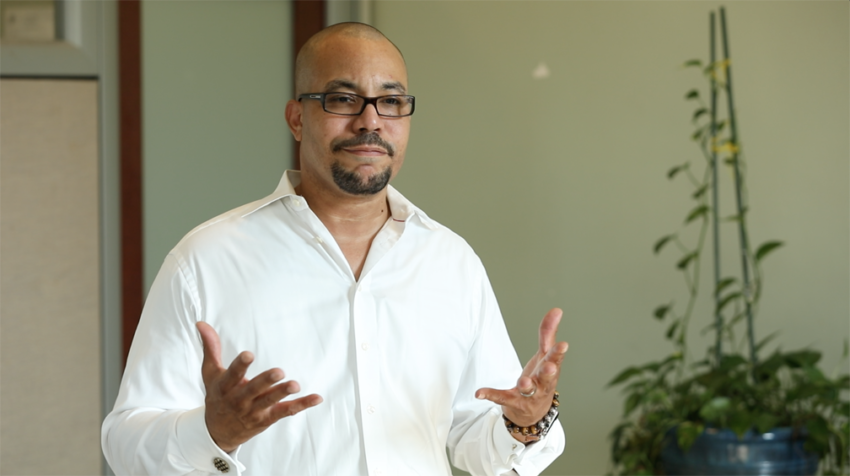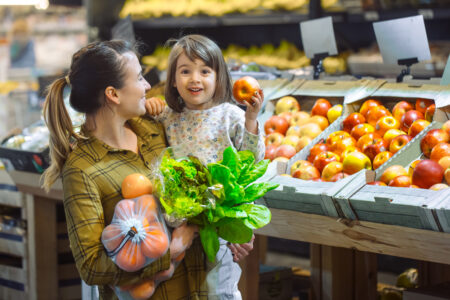
Share On Social!
Family separations. Broken families. Little social support.
In these tough times, abuela and abuelo often have to step up a caregivers for young children.
That is why Raheem Baraka’s Baraka Community Wellness partnered with nonprofit Tree of Life to create a unique support group for Spanish-speaking grandparents who are doubling as caregivers in Boston (19% Latino).
“There are many grandparents who are raising their grandchildren,” Baraka told Salud America! in July 2018. “There are broken families. There are challenges around our people staying together in highly traumatic and stressful situations.”
The Need for Grandparents as Caregivers
In 2016, a record 64 million people, or 20% of the U.S. population, lived with multiple generations under one roof, according to a recent Pew Research Center analysis of census data.
Latinos are more likely than their white peers to live in multiple-generation households (26% to 16%).
These families often lack social and economic support for children’s wellness and education. This makes it difficult for Latino children to achieve academically, socially, and physically, according to a Salud America! Research Review.
Latino grandparents often take on the role of caregiver for their grandchildren.
That role brings many emotional and financial challenges. These grandparents have few local, state, or federal resources to draw on to help them in this role.
Raheem Baraka saw an opportunity to help.
Making Latino Health a Priority in Boston
Raheem Baraka is the director of nonprofit Baraka Community Wellness.
Baraka Community Wellness makes health a civil rights issues through community wellness programs.
Their first program was Healthy Moms Healthy Kids.
They then looked for local partners to create other new programs and augment others.
In that way, Baraka Community Wellness came together with nonprofit Tree of Life for an idea to develop a support group for Latino grandparents who may be struggling as caregivers.
Support Group for Spanish-Speaking Grandparents
The two groups called it “Spanish Grandparent Raising Grandchildren.”
This support group meets in a local public housing development. It operates as a peer-to-peer group. Spanish-speaking grandparents who are raising their grandchildren are able to share stories and connect at all different levels.
Grandparents also get support and resources.
They also connect to information and activities in their community to support and strengthen the family.
“Spanish Grandparents Raising Grandchildren was created to assist the grandparents with a new way of adapting to a newer generation [as compared to] their children, but also reinforcing that family unit as it was the original family unit,” Baraka said.
The group focuses on health outcomes. They also focus on stressors and the challenges grandparents face while raising their grandchildren.
“If you are a grandparent and you’re 60, 70 or even 50 for that matter, and you’re raising a new 5-year-old, 3-year-old, 2-year-old, it’s a lot when you’ve already raised your kids,” Baraka said.
Baraka feels there’s new ways of approaching these types of situations.
Bringing in expertise to support grandparents from a behavioral standpoint is crucial, he explained.
“It’s about community. It’s about reinforcing the connection with grandparents and their children, and there’s a community around them” Baraka said.
“It does take a village to raise a child and even though the [Spanish] grandparents are skilled and capable, it’s always great to have extra help and extra support around.”
Editor’s note: Raheem J. Baraka passed away unexpectedly in September 2018. Baraka was loving husband, father of three, and community leader devoted to ending health disparities facing communities of color. Donations for the Baraka family are being accepted. If you’d like to donate to Baraka Community Wellness, please contact Erika Bardouille at e.d.bardouille@gmail.com or (617) 637-7742.
Explore More:
Healthcare AccessBy The Numbers
25.1
percent
of Latinos remain without health insurance coverage
This success story was produced by Salud America! with support from the Robert Wood Johnson Foundation.
The stories are intended for educational and informative purposes. References to specific policymakers, individuals, schools, policies, or companies have been included solely to advance these purposes and do not constitute an endorsement, sponsorship, or recommendation. Stories are based on and told by real community members and are the opinions and views of the individuals whose stories are told. Organization and activities described were not supported by Salud America! or the Robert Wood Johnson Foundation and do not necessarily represent the views of Salud America! or the Robert Wood Johnson Foundation.



